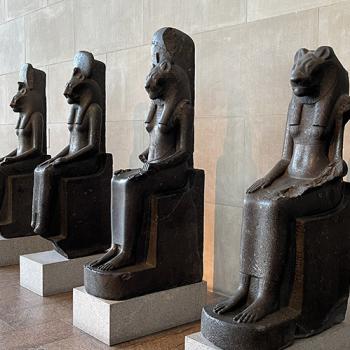Jedd: We've both been Christians most all of our lives. But we have to confess that at times we'd seen Jesus as having more relevance to the next life than to this one. That's foolishness. The more we've studied and reflected upon his way of communication, the more we've been blown away—from how he used stories and questions, to the way he made himself so fully present to others, to the transparency that one almost never sees among leaders today. This in no way diminishes His identity or redemptive mission. In our view, it only affirms their truth.
You have a chapter titled, "The Rarest Commodity in America." What is this?
Jedd: Attentiveness. The speed and noise of life today makes it almost impossible to give ourselves wholly to the person in front of us, even for five minutes. Jesus' way cuts in the opposite direction. He, too, faced dizzying busyness, demands on his time, urgency, and noise. Yet he continually put a premium on attending fully to the person in front of him: the bleeding woman, Zacchaeus, the children his disciples wanted to chase away. When we follow him in this, our communication becomes downright subversive to the false gods of our era.
Erik: Sorry, I didn't hear the question. I was looking at my Instagram while listening to Spotify in between composing an important email for work. (Laughing.) You get our point . . .
You argue that one of the most important ways to give our communication a true "authenticity" is to "tell of both beauty and brokenness." What do you mean by this?
Erik: Christians, in particular, seem drawn to communicating only about shiny, happy things. Our testimonies imply, "Everything was bad and now everything is dandy." Our words come across like a Thomas Kinkaid painting. In contrast, both Jesus' words and life continually intertwined joy and pain, light and darkness. The rest of the Bible, especially the Psalms, does the same. Apprentices to Jesus are continually attuned to the fact that most every story and idea, if conveyed with authenticity, will carry a strong dose of both the lovely and the broken, blessing and ache. My wife says it best, "We are all a mess." It's true, and a great starting point for any conversation.
What's one specific lesson from the book that could improve how readers communicate today?
Jedd: Make the ideas you want to convey concrete. When you help others to encounter a concept with their senses—really seeing or touching or even tasting it—that idea will be more deeply understood and remembered longer. Jesus did this continually. No idea remained abstract for long. He held up a coin, pointed out a poor widow, called forward a child. He called us not to be "good witnesses" but salt and light. He gave us the bread and the cup to remember him by. Jesus is the eternal Word made flesh, and he continually caused his words to take on flesh as well.His apprentices do the same.
You see great significance in the fact that Jesus asked so many questions. Why do you think he did that?
Erik: Questions have a way of circumventing our innate resistance to change. When we ask a good question, a person can't respond, "I disagree with your claim." Rather, they have to interact with the issue and dig down into their unspoken assumptions. Questions also turn the focus where it should be: on the listener, and her own decision-making process, rather than on the "power" of our persuasion.
You include a chapter on the importance of "time away from the crowd." Explain how our silence shapes the words we speak.
Erik: Modern life overflows with noise and frenetic activity. Our words will reflect that garbled reality if we fail to carve out regular times away from it all—in solitude, Sabbath, and silence. Without these, our communication may still carry information or entertainment value, but we'll really provide nothing beyond what people could get from a million different sources already. We all need margins—in our money, in our time, and in our rest. We need space to be silent.
You claim that every aspect of apprenticing to Jesus must ultimately flow from a deep sense of His Father's heart and character. Why is that?
Jedd: The truths we learn about communication from Jesus apply to anyone, Christian or not. But ultimately, really living them costs much more than we'd initially think. If we just want to "win friends and influence people," we'll try to adopt an effective technique, but will always stop far shy of the truly upending choices Jesus made in how he communicated. To go full bore, we must draw from a deeper motivation. Ultimately, the true apprentice to Jesus seeks to serve others in communication as a reflection of what we experienced first from God. "We love because He first loved us."
You have some interesting comments about the biggest choices we'll ever make. Explain your views for our readers.





